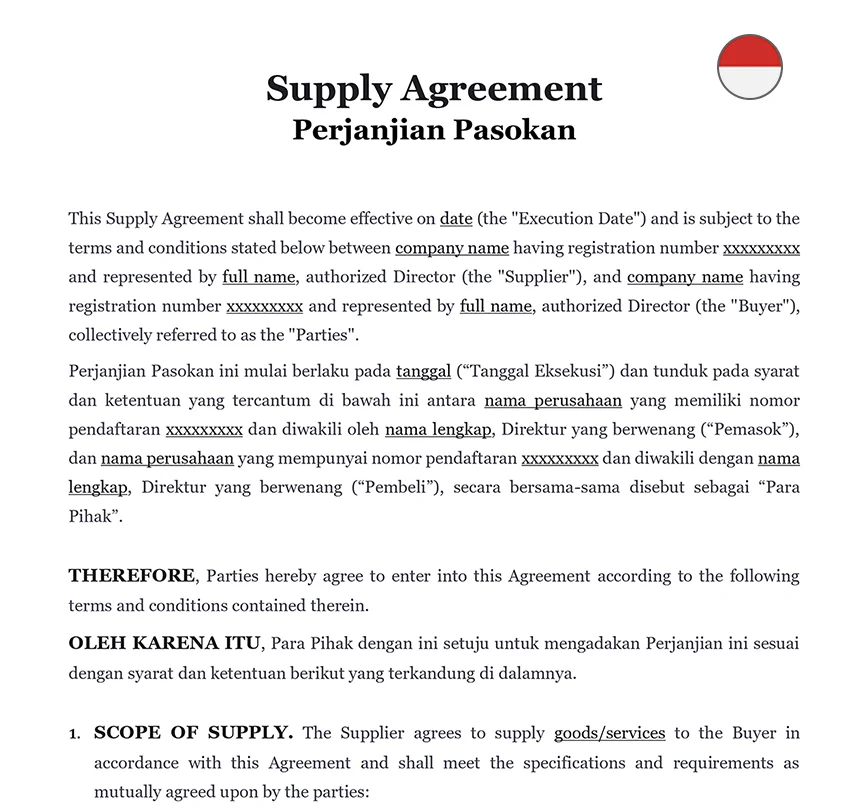Ready to use legal template
Drafted by experienced lawyers
Indonesian-English translation
Ready to use legal template
Drafted by lawyers
Indonesian-English translation
Home › Business contracts › Supply Agreement
Learn more about Supply Agreement in Indonesia
A supply agreement is a key legal contract that sets the terms for buying and selling goods or services between two parties in Indonesia. It’s an essential tool that outlines product details, delivery times, prices, and quality requirements. Themis Partners provides a customizable template, created by legal experts to meet Indonesian regulations, ensuring a smooth and secure supply process. This template is designed to be straightforward and adaptable, making it easy to edit while remaining compliant with local laws. Whether you’re a supplier or a buyer, this document is crucial for clear communication and successful business transactions in Indonesia. For a comprehensive legal framework for various business transactions in Indonesia, Themis Partners also offers a Distribution Agreement and a Service Agreement.
Table of contents
-
What is a Supply Agreement in Indonesia?
-
Why use a Supply Agreement?
-
What should a Supply Agreement include under Indonesian law?
-
What are the key benefits in a business relationship?
-
How does it offer legal protections?
-
What if I don’t have a Supply Agreement?
-
How can a Supply Agreement be terminated in Indonesia?
What is a Supply Agreement in Indonesia?
A supply agreement is a legally binding contract established between a supplier and a buyer to govern the terms and conditions of the supply of goods or services. It outlines the rights and obligations of both parties, ensuring a clear understanding of the expectations and responsibilities involved in the supply relationship. The agreement typically covers key aspects such as the quantity and quality of the products or services, pricing and payment terms, delivery schedules, warranties, Intellectual Property rights, confidentiality, dispute resolution mechanisms, and termination provisions. A well-drafted supply agreement promotes transparency, reduces misunderstandings, and provides a framework for a mutually beneficial business relationship between the supplier and the buyer.
Why use a Supply Agreement?
Using the agreement offers several advantages for both suppliers and buyers.
| ➤ Firstly, it provides a clear understanding of the terms and conditions governing the supply relationship, minimising potential disputes and misunderstandings. |
| ➤ The agreement defines the rights and obligations of each party, ensuring transparency and accountability. |
| ➤ It also helps to establish consistent standards for the quality, quantity, and delivery of goods or services, which promotes reliability and customer satisfaction. |
| ➤ Additionally, a supply agreement can address important aspects such as pricing, payment terms, intellectual property rights, and confidentiality, protecting the interests of both parties. |
| ➤ By formalizing it, the agreement provides a legal framework for resolving conflicts, facilitating efficient dispute resolution. |




